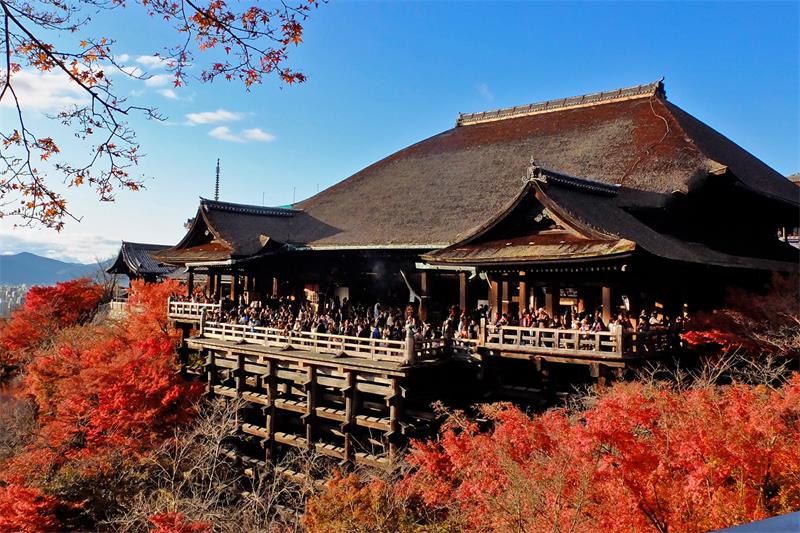Contents
Timing is Everything: The Importance of Knowing the Best Times to Travel for Cheaper Deals
Traveling can be quite expensive, especially if you don’t plan ahead or take advantage of deals. One of the most important factors to consider when booking a trip is timing.
Whether it’s securing the best flight deals or finding affordable accommodations, knowing when to travel can make all the difference.

The Best Times to Travel for Cheaper Deals
The best times to travel for cheaper deals vary depending on your destination and personal preferences. However, there are certain periods during the year that tend to offer better deals and discounts compared to others. One of these times is during off-peak season, which refers to periods when tourist traffic is low or minimal.
This usually happens during colder months in destinations with seasonal climates. During off-peak season, airlines and hotels tend to offer lower prices in order to attract travelers and fill empty seats and rooms.
Another period that offers great deals on travel is shoulder season. This refers to the period between peak and off-peak seasons when tourism traffic starts slowing down.
Shoulder season usually offers good weather conditions and fewer crowds compared to peak season but still at a lower price than peak-season rates. Last-minute travel opportunities also offer great savings as airlines and hotels try hard not to leave seats or rooms empty; they will often reduce their prices drastically just before the departure date.
Knowing when these periods occur can save you lots of money while still enjoying all that your destination has to offer. In this article, we’ll delve deeper into each period so you have all the information needed for planning your next budget-friendly adventure!
Off-Peak Season Travel
Definition and Explanation of Off-Peak Season Travel
Off-peak season travel is the period when a particular destination is less crowded and the prices of flights, accommodations, and activities are lower than during peak season. The exact time for off-peak season travel varies from one destination to another.
For example, in Europe, it’s usually between November and March, while in Hawaii, it’s between April and May or September and October. During off-peak season travel, there are fewer tourists around which means less hustle and bustle at popular attractions.
This can lead to a more relaxed experience without crowds or long lines. Additionally, many airlines offer discounted rates during this time as they try to fill their planes.
Examples of Destinations with Off-Peak Seasons
There are many destinations that have off-peak seasons where you can find some great deals. In the Caribbean islands, the off-peak season runs from April to mid-December when there is less demand because of hurricane season fears.
Southern European countries like Spain also have an off-season period between November to March when temperatures drop making it less attractive for beachgoers but perfect for sightseeing. Other destinations with off-peak seasons include Asia between March to May or September to November when the weather isn’t as hot; South America’s off-season lasts from April through June; Africa has an off-season period from January through March.
Advantages & Disadvantages of Traveling During Off-Peak Season
The advantages of traveling during an off-peak season are clear: lower prices and fewer crowds lead to a more enjoyable experience overall. Skiers love traveling during shoulder seasons because they get better deals on lift tickets while avoiding crowded slopes. Beachgoers can get great deals on hotel stays by traveling during the off-season, and those who enjoy sightseeing can take advantage of smaller crowds and shorter waits for attractions.
However, there are some disadvantages to traveling during the off-peak season. Many restaurants, shops, or attractions may not be open due to low demand.
Additionally, the weather might not always be ideal for outdoor activities. For example, if you are planning a trip to Hawaii during their off-season period from April to May or September to October expect occasional rainstorms and high humidity which may hinder some outdoor experiences.
Shoulder Season Travel
The Sweet Spot Between Peak and Off-Peak Travel
Shoulder season travel is a bit like the Goldilocks zone of travel. It’s not too hot, it’s not too cold, it’s just right. This season sits in between peak travel times – when the crowds are at their highest and prices are through the roof – and off-peak travel times – when things quiet down but prices can still be sky-high.
Shoulder season offers travelers the best of both worlds: fewer crowds and more affordable prices. One of the advantages of shoulder season travel is that you can enjoy destinations without having to contend with huge crowds.
You’ll have more space to move around, shorter lines at popular attractions, and less competition for accommodation. Plus, you’ll be able to interact with locals more easily because they won’t be overwhelmed by tourists.
Where to Go for Shoulder Season Deals
Many destinations have shoulder seasons that offer great deals for travelers. For example, Europe is a popular destination during summer but April-May or September-October offer lower rates on accommodation and airfare while still providing warm enough weather to explore outdoors comfortably. Caribbean islands are expensive during winter months but offer cheaper deals from April to June as storms begin to develop over the Atlantic.
Asia also has great shoulder seasons that provide value for money like visiting Japan in Spring (March-April) before the school holidays start or Vietnam (September-November) before the Christmas holidays kick in. While some destinations may have a specific time frame for their shoulder season, others may vary depending on various factors such as weather patterns and local events.
Pros And Cons Of Shoulder Season Travel
As with most things in life, there are pros and cons associated with shoulder season travel: Advantages:
– Lower prices compared to peak season – Fewer crowds which make for a more relaxing trip
– Mild weather in many destinations – Local tourism industry may be less stressed allowing for better customer service
Disadvantages: – Fewer tourist-oriented activities (tour operators, restaurants, etc.) may be open during the shoulder season
– Less reliable weather – Limited or no availability of the most popular accommodations.
Overall, the advantages of shoulder season travel often outweigh the disadvantages. It’s worth considering this option when planning your next vacation to save on costs and enjoy a more laid-back experience.
Last-Minute Deals: Grabbing the Best Travel Deal at the Last Minute
Booking last-minute travel deals can be a great way to save money, but it requires a bit of flexibility in your travel plans. Last-minute deals are typically offered by airlines, hotels, and tour operators looking to fill unsold inventory quickly. These deals often offer steep discounts on airfare, accommodations, and activities.
Explanation of last-minute deals: Typically, last-minute travel deals require you to book within a few days or weeks of your departure date. This can be a stressful way to plan your trip but can also lead to fantastic savings for those who are flexible with their plans.
Last-minute deals can be found on various websites that aggregate different offers from airlines and hotels or directly through the company’s website. Tips for finding last-minute deals: To increase your chances of finding a good deal at the last minute, start by signing up for newsletters from discount airline carriers or hotel chains that you’re interested in staying with.
This way, you’ll receive notifications when these companies offer special promotions or sales on short notice. Another approach is to use online booking portals that specialize in offering last-minute travel deals.
Some popular options include Expedia’s “Last Minute Deals” section and Booking.com’s “Tonight’s Deals”. Alternatively, social media platforms like Twitter and Facebook can be useful tools for finding exclusive discounts on flights and hotels.
Advantages and disadvantages of booking last-minute deals: One significant advantage of booking last-minute travel is the potential savings. The closer it gets to your departure date; the more likely it is that airlines or hotels will discount their prices significantly if there are still empty seats or rooms available.
However, there are also some downsides associated with booking at the last minute – limited availability being one of them. Popular destinations and peak seasons often sell out quickly, leaving you with fewer options or higher prices.
Another potential disadvantage is that last-minute deals tend to be less flexible regarding changes and cancelations. Therefore, if you’re planning a trip that involves multiple bookings or complicated itinerary plans, last-minute deals may not be the best option for you.
Midweek Flights
Why Midweek Flights are Cheaper
Have you ever noticed that flights on Tuesdays or Wednesdays tend to be cheaper than those on Fridays or Sundays? This is because airlines assume that most people prefer to travel over the weekend, so they hike up prices accordingly.
However, on weekdays, there are fewer people traveling, so airlines have to lower prices to fill seats. This is why midweek flights can be much cheaper than weekend ones.
Tips for Finding Midweek Flights
If you’re looking to save money on your next trip, it’s worth considering traveling midweek. To find the best deals, start by using flight aggregator websites like Skyscanner or Google Flights. These platforms compare prices from different airlines and highlight the cheapest options available.
Another tip is to be flexible with your travel dates. If you can’t find a cheap midweek flight for your desired departure date, try shifting it by a day or two – sometimes even just one day can make a significant difference in price.
Advantages and Disadvantages of Traveling Midweek
The main advantage of traveling midweek is obvious – you’ll save money! Plus, airports are often less crowded during the week, which can make for a more pleasant flying experience overall. Additionally, hotels tend to be less expensive during the week as well.
However, there are some downsides to traveling midweek. For example, if you have a full-time job and limited vacation days, taking time off work during the middle of the week may not be feasible.
Additionally, if you’re traveling for business purposes rather than leisure, it might not make sense to fly midweek if it interferes with important meetings or conferences. Overall though, if you’re able to take advantage of cheaper fares and don’t mind traveling during the week, midweek flights can be a great way to save money on your next trip.
Holiday Travel
Save Money on Holiday Travel
Traveling during the holidays can be incredibly expensive, but there are ways to save money. First and foremost, book your travel plans well in advance. The earlier you book, the better deals you will find.
Also, be flexible with your dates if possible. Some days may be cheaper to fly than others.
Consider traveling to less popular destinations during the holidays. For example, instead of New York City at Christmas time, try visiting a smaller city like Portland or Asheville that still offers festive holiday activities but with fewer crowds and lower prices.
Consider alternative lodging options such as Airbnb or house swapping instead of traditional hotels. These options often offer more space and amenities for less money.
Tips for Finding Affordable Holiday Travel Options
If you’re looking for affordable holiday travel options, start by checking out budget airlines and comparison websites like Kayak or Skyscanner. These resources can help you find the cheapest flights available. Another tip is to use rewards points from credit cards or frequent flyer programs to help offset the cost of travel expenses.
Many credit cards offer sign-up bonuses that can provide enough points for a free flight or hotel stay. Additionally, consider traveling on alternative days such as Thanksgiving Day itself or Christmas Eve instead of peak travel days like the day before Thanksgiving or Christmas Day.
Advantages and Disadvantages of Traveling During Holidays
The advantages of traveling during the holidays include experiencing unique cultural events and traditions that only happen during this time of year. Additionally, many cities offer beautiful holiday decorations and lights displays that are worth seeing in person. However, there are also some disadvantages to holiday travel including higher prices for flights and accommodations due to high demand, larger crowds at popular destinations which can be overwhelming for some travelers, and potential weather delays due to winter weather conditions.
Despite the potential drawbacks, traveling during the holidays can be a wonderful experience with some planning and flexibility. By using these money-saving tips and being prepared for crowds and weather challenges, you can enjoy all that the holiday season has to offer.
Conclusion
Timing is everything when it comes to booking travel. By knowing the best times to travel for cheaper deals, you can save a lot of money without having to compromise on the quality of your vacation. Whether you choose to travel during off-peak or shoulder season, take advantage of last-minute deals, book midweek flights, or plan holiday travel wisely, there are plenty of options available.
Recap on the best times to travel for cheaper deals
To recap, off-peak and shoulder seasons are great times to find cheaper deals on flights and accommodation. You can also take advantage of last-minute deals that may be available due to cancellations or unsold inventory.
Midweek flights tend to be cheaper than weekend ones because they are less in demand. If you plan your holiday travels wisely and book early enough, you can often save a significant amount of money.
Final thoughts and recommendations
When it comes to booking affordable travel, there is no one-size-fits-all approach. It all depends on your preferences and priorities. However, if saving money is one of your top priorities when planning a trip, then consider using these tips and strategies in your planning process.
Remember that timing is key. Keep an eye out for special promotions and discounts that may be available during specific periods or events.
Don’t hesitate too long if you find a great deal; it may not last very long! Above all else, have fun!
Traveling should be an enjoyable experience that enriches our lives with new experiences and memories. Don’t let the stress of finding affordable prices ruin the excitement of exploring new places.













